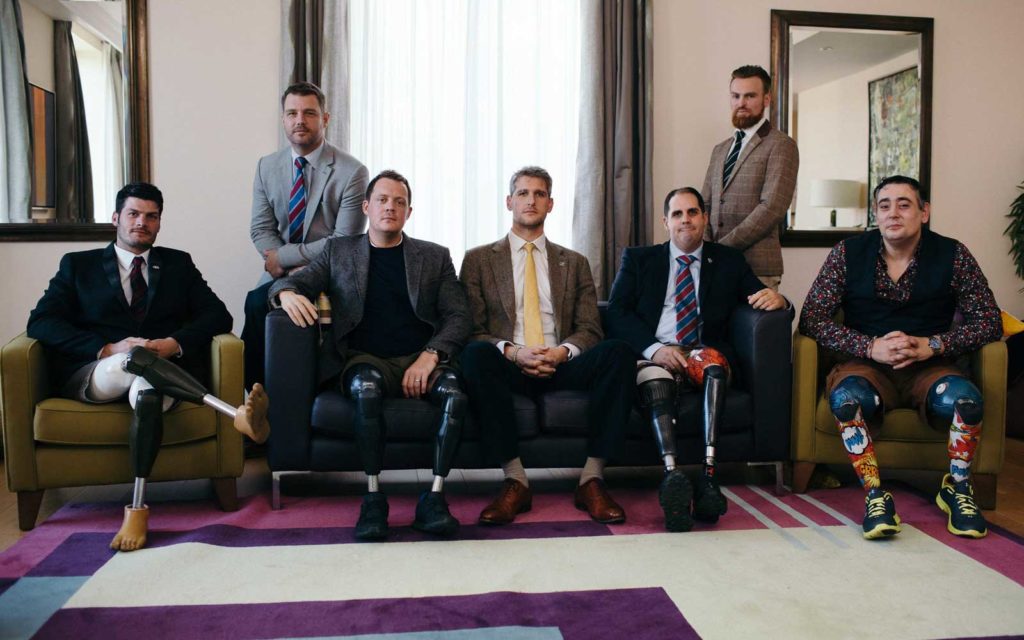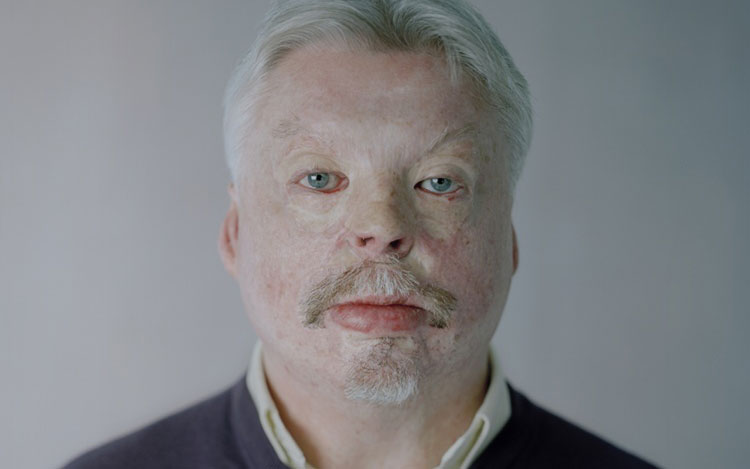Photography by James Allen
About us

Improving Lives
It is our aspiration to generate a national and international network of clinical and academic research with the common goal of improving the lives of patients living with scarring and developing approaches to prevent scarring.
The Scar Free Foundation Centre for Conflict Wound Research at Queen Elizabeth Hospital Birmingham (QEHB), is a partnership with the University of Birmingham (UoB), the Centre for Appearance Research (CAR, University of the West of England), and the CASEVAC injured veterans club.
Improving the lives of patients living with scarring and developing approaches to prevent scarring.
Reduce the Impact of Scarring
The principal aim of the Centre is to reduce and eventually eradicate the impact of scarring and related loss of function amongst Armed Forces personnel who sustain critical injuries during their deployment, as well as civilians injured in conflict or terrorism incidents. It will achieve this by supporting a nationally relevant programme of biological and clinical research under three strategic themes.

Photography by Spencer Murphy
Acute wound care and diagnosis and diagnosis
Development of therapies and diagnostic tools that are appropriate for treating acute injuries sustained in austere conflict environments, where risks of contamination, extremes of temperature, and transportability are all factors.
The biology of scarring biology of scarring
To better inform new treatments by advancing our understanding of how the body heals and protects itself following the types of trauma that are likely in future conflicts, including chemical, burn, and complex blast injury.
Life-long scar impact, revision, and rehabilitation
Improvement of therapies for seriously injured Armed Forces personnel and veterans to reduce and correct scars, and to promote resilience to the psychological impact of their injuries.

Military Research Treatment
Against these themes, the Centre will identify and support medical studies within the civilian and military veteran population that can be applied to military treatment. The University of Birmingham will lead research to:
- Develop and undertake a “first-in-man” trial for a novel battle-ready dressing which reduces scarring;
- With the involvement of a veterans cohort, understand the mechanisms behind laser treatment to correct established scarring, and to pilot additional drug therapies to improve its effectiveness;
- Improve understanding of the biological processes behind scarring and wound healing to inform personalised treatment pathways from the point of conflict injury.
Reintegrate and Adjust to Civilian Life
The Centre for Appearance Research, with the support of the CASEVAC injured veterans group, will interview ex-service personnel from Operations TELIC and HERRICK with physical disfigurements resulting from combat injuries and their family members, to establish the social and rehabilitation needs of this group. This research will identify effective psychosocial interventions to help them to reintegrate and adjust to civilian life, which will be piloted in year three.
The advances our Centre’s research makes around wound/scar treatment and rehabilitation will not only benefit serving and former Armed Forces personnel. Improvements made will contribute to improving civilian and humanitarian healthcare, nationally and globally.

